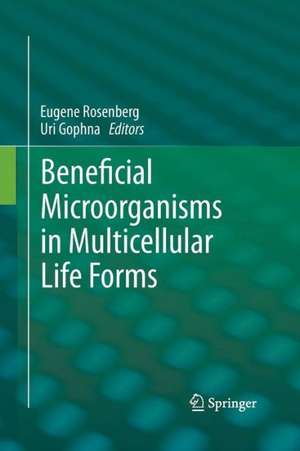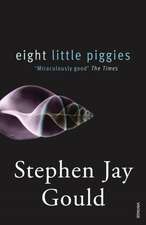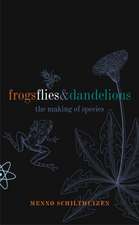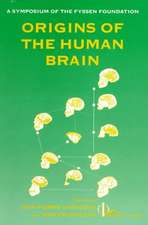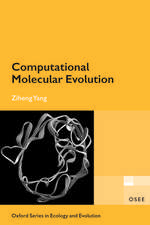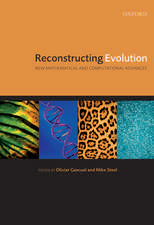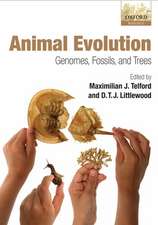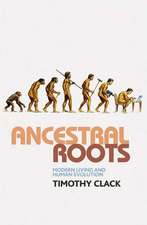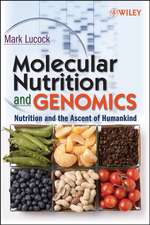Beneficial Microorganisms in Multicellular Life Forms
Editat de Eugene Rosenberg, Uri Gophnaen Limba Engleză Paperback – 11 oct 2014
| Toate formatele și edițiile | Preț | Express |
|---|---|---|
| Paperback (1) | 947.50 lei 6-8 săpt. | |
| Springer Berlin, Heidelberg – 11 oct 2014 | 947.50 lei 6-8 săpt. | |
| Hardback (1) | 951.29 lei 6-8 săpt. | |
| Springer Berlin, Heidelberg – 30 aug 2011 | 951.29 lei 6-8 săpt. |
Preț: 947.50 lei
Preț vechi: 1155.48 lei
-18% Nou
Puncte Express: 1421
Preț estimativ în valută:
181.30€ • 188.92$ • 150.12£
181.30€ • 188.92$ • 150.12£
Carte tipărită la comandă
Livrare economică 03-17 aprilie
Preluare comenzi: 021 569.72.76
Specificații
ISBN-13: 9783642433665
ISBN-10: 3642433669
Pagini: 360
Ilustrații: IX, 348 p.
Dimensiuni: 155 x 235 x 19 mm
Greutate: 0.5 kg
Ediția:2011
Editura: Springer Berlin, Heidelberg
Colecția Springer
Locul publicării:Berlin, Heidelberg, Germany
ISBN-10: 3642433669
Pagini: 360
Ilustrații: IX, 348 p.
Dimensiuni: 155 x 235 x 19 mm
Greutate: 0.5 kg
Ediția:2011
Editura: Springer Berlin, Heidelberg
Colecția Springer
Locul publicării:Berlin, Heidelberg, Germany
Public țintă
ResearchCuprins
Microbial symbioses in the digestive tract of lower termites.- Insect “symbiology” is coming of age, bridging between bench and field.- Chironomids and Vibrio cholera.- Role of bacteria in mating selection in Drosophila melanogaster.- Legume-microbe symbioses.- Plant growth promotion by rhizosphere bacteria through direct effects.- Rhizosphere microorganisms.- Microbial protection against plant disease.- Bacterial Symbionts of Corals and Symbiodinium.- Coral-associated heterotrophic protists.- Effect of ocean acidification on the coral microbial community.- Towards the educated design of bacterial communities.- Oral microbes in health and disease.- Role of rumen microbiota in determining the feed efficiency of dairy cows.- The intestinal microbiota and intestinal disease: irritable bowel diseases.- Intestinal microbiota and intestinal disease: inflammatory bowel diseases.- A role for bacteria in the development of autoimmunity for type 1 diabetes.- Impact of Intestinal Microbial Communities upon Health.- Commensalism versus virulence.- Prebiotics - Modulators of the human gut microflora.- Host genetics and gut microbiota.- Microbial symbiont transmission – basic principles and dark sides.- Hydra go bacteria.- The hologenome concept.
Textul de pe ultima copertă
All animals and plants form associations with hundreds or thousands of different beneficial microorganisms. These symbiotic microbes play an important role in the development, adaptation, health and evolution of their hosts. This book brings together a group of diverse biologists to discuss microbial interactions with multicellular life forms including insects, corals, plants, and mammals, including humans. The various mechanisms by which microorganisms benefit their hosts are discussed, including providing essential nutrients, preventing disease, inducing the immune system, and combating stress. Since the microbiota can be transferred from parent to offspring, it plays an important role in the origin and evolution of animal and plant species. This book should be of interest to the widest range of biological scientists, merging the studies of host and microbial physiology, symbiosis, and the ecology and evolution of symbiotic partners.
Caracteristici
Explains the role of microorganisms in the health or disease of their hosts
An interdisciplinary view written by experts in the field
Includes supplementary material: sn.pub/extras
An interdisciplinary view written by experts in the field
Includes supplementary material: sn.pub/extras
